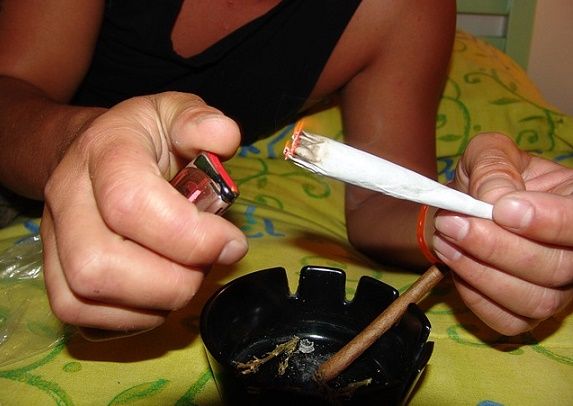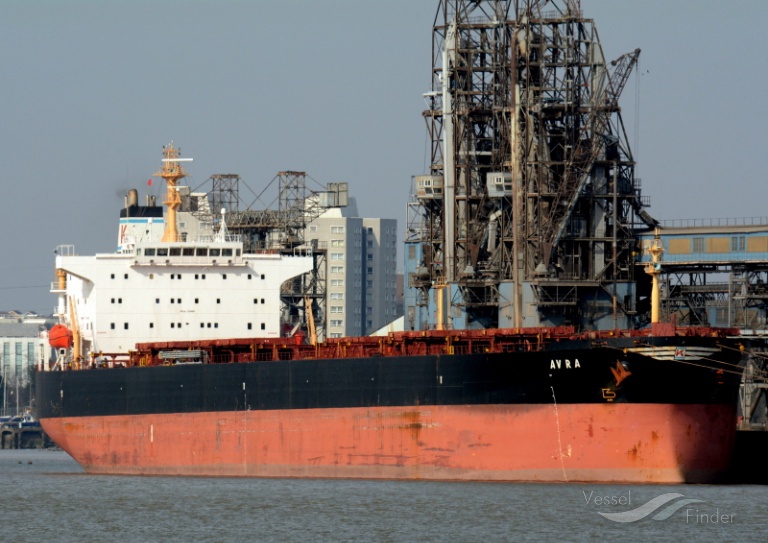A bill to legalise cannabis in Copenhagen will tomorrow be heard at City Hall with support from two of the capital’s best supported parties: Socialdemokratiet, which is led by city mayor Sophie Hæstorp Andersen, and Venstre.
It is item 48 on the agenda at the Borgerrepræsentationen meeting.
If approved, Pusher Street in Christiania will reportedly be moved to Rådhuspladsen, the city hall square, or Nørreport Station, according to Dansk Folkeparti councillor Finn Rudaizky.
But then again, he might be joking …
Likely to switch to cocaine
The legalislation of cannabis was part of Andersen’s election manifesto, but some take issue with her claim it will deprive gangs of revenue.
Rudaizky worries they’ll simply gravitate to more serious drugs such as cocaine, while there will also be a black market demand for cannabis from teens under the age of 18.
“It is strange that S and V spend so much time getting carcinogenic cannabis legalised than putting efforts into helping cannabis addicts who are increasingly dropping out of their education,” Rudaizky told kobenhavnliv.dk.
“It’s really ridiculous.”
Cruise ship visits to capital decreasing due to Baltic Sea concerns
International cruise ship tourists are increasingly shunning the Baltic Sea due to the War in Ukraine – and possibly because St Petersburg is out of play – and this is hitting Copenhagen hard in the pocket. So far this year, the number of expected cruise ships visiting the Danish capital has fallen from 343 (as expected at the beginning of the year) to 326 due to the lack of demand. However, numbers are soaring elsewhere, raising Denmark’s overall number of dockings from 544 to 592. Among the biggest gainers are Bornholm (up 16 to 91), Skagen (up 16 to 61) and Aarhus (up 27 to 63). Nevertheless, Copenhagen is experiencing a growth in cruise-related tourism as more cruises are either starting or ending in the Danish capital, and the tourists are spending longer in the capital as a result.
Old diesel cars face being banned in Copenhagen if a filter isn’t fitted
In April, Parliament passed a bill enabling municipalities to banish diesel cars from so-called environmental zones, and now City Hall is ready to make it a legal requirement that pre-2009 cars should be fitted with a particulate filter fitted. There are an estimated 3,600 such vehicles in the Capital Region. Such an apparatus, reasons City Hall, will reduce particulate pollution from exhausts by around 40 percent. Socialdemokratiet has dismissed car owner association FDM’s claims it will hit households that cannot afford the filter. S councillor Mette Reissmann reasoned that impoverished car owners should consider sharing their cars more.
Nine out of ten transport service providers guilty of social dumping
The vast majority of companies that supply transport-related services to City Hall are failing to live up to Copenhagen Municipality’s strict laws regarding social dumping. Nine out of ten are not adequately paying their employees and flouting working condition regulations. City Hall claims the afflicted employees are owed close to 4.75 million kroner since 2021, 1.75 million relating to 2020, and 1.46 million relating to 2019. “When you sign a contract with the City of Copenhagen, you know there must be proper pay and working conditions, and there are far, far too many who have not lived up to it,” complained Socialdemokratiet councillor and group chair Lars Weiss. “It really is crap.”
Finally a solution for the troublesome Dybbølsbro intersection?
City Hall has for several years been trying to make the intersection near Dybbølsbro, where Ingerslevsgade and Skelbækgade come together, work efficiently, but continued newcomers to the crossroads fail to grasp how to negotiate the junction. So instead of asking cyclists to stop halfway through the junction, plans are afoot to enable them to cycle diagonally straight across the crossroads, taking them onto the widest cycle lane in Denmark, which leads to Fisketorvet and then Amager via the famous snake bridge. A 3.5 million rejigging of structures, lines and traffic lights will be required, making the junction the first in Denmark to include a green light for cyclists where cars are required to wait. The plans still need approval from City Hall.
Tokyo drawn towards Copenhagen to launch its first electric car
Toyota has decided to launch its first ever electric car in Copenhagen – a decision the Japanese manufacturer has attributed to the Danish capital’s glowing green credentials. The Toyota bZ4X will be unveiled outside CopenHill at Amager Bakke on June 6. Some 300 journalists from all over Europe have been invited, and they will have the chance to test-drive 25 of the cars over the following fortnight. A specially built track has been set up at CopenHill. “It is absolutely fantastic and really a great gift both to Denmark and not least Copenhagen, when Toyota chooses our capital as host city for the international presentation of the first of a long line of new, dedicated electric cars from the company,” enthused Toyota Denmark press manager Anders Tystrup. The car will then go on sale over the weekend of June 18-19 for a price of 387,990 kroner.
Swans still nesting in rubbish: a story of our times
A lesser known aspect of HC Andersen’s tale ‘The Ugly Duckling’ is that the protagonist was born in a nest made of rubbish – as has routinely become the experience of most new-born cygnets at the Copenhagen Lakes in recent years. Swans tend to return to the same spot every year, where an inexhaustible supply of discarded plastic bags, broken mugs and takeaway waste keeps them nestled in. And according to Dyrenes Beskyttelse, the class of 2022 will be no exception. Last year, the organisation received 508 notifications of animals with un-natural items in their throat or elsewhere on their bodies. A 2018 report of a swan giving birth in a rubbish heap made waves across the world.
Millions earmarked to transform the dirty road between Central Station and Istedgade
City Hall has confirmed that 217 million kroner will be spent on transforming Copenhagen Central Station – specifically the facade overlooking Reventlowsgade, the non-descript street where famous Istedgade ends, which is currently best known for drunks, tourist traps and parked bicycles – lots of them. Once finished, Reventlowsgade should be heaving in fancy cafes and shops. National rail operator DSB will oversee the work, which will also include renovating some of the existing retail outlets inside the building. Meanwhile, a further 25 million kroner has been set aside for the beautification of nearby Nørreport Station. Much will be spent on removing graffiti and nasty smells from the area.
Four new bathing zones promised for capital … and four new saunas too
Copenhagen Harbour will add four new bathing zones over the next 18 months, but it has not absolutely been confirmed where the 2023 additions will be sited yet. The first has already been established at Teglværkshavnen in Sydhavn where Vandtrappen and Solnedgangstrappen meet. The 100 metre-long zone won’t have lifeguards or a bottom sheet. And the second is an expansion of the bathing zone near La Banchina at Refshalevej 141, but it will not be completed until after the summer. Four saunas will also be set up, two this year and two next, at locations such as Kalvebod Bølge, Havnegade and Nokken.















